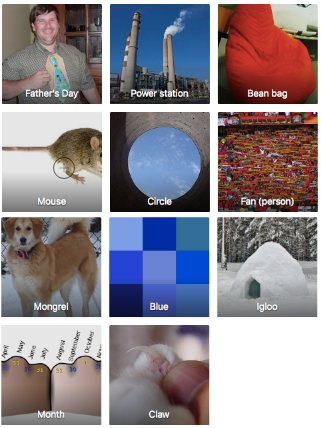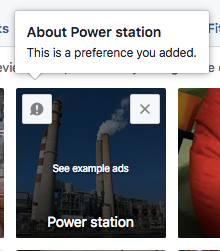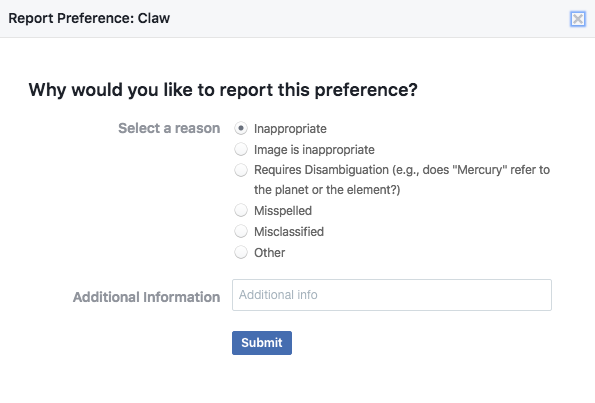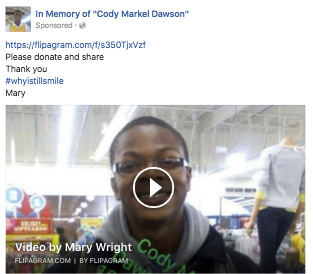Facebook has been pivotal in revolutionizing the way that advertisers are able to reach their audience through advanced interest targeting based on inferred data. Unfortunately, it seems as though they’ve allowed their absurd specificity and breadth of interest options to get in the way of their accuracy.
After seeing multiple news articles about how Facebook can predict your political preferences, I looked into my own ad preferences. I was horrified at what I found.
This new tool shows users what Facebook determines are their interests, so they can allow advertisers to target them accordingly. Users are able to remove what interests aren’t accurate so that they will see ads that will be relevant to them.
The launch of this tool has provided a glance into the deep flaws of Facebook’s interest targeting. Advertisers should be concerned about where their dollars are going, because they’re not going to the right people. Here are the main flaws I came across:
It is wildly inaccurate

This is the Fischer family. Phil Fischer runs a bible study in Seattle and seems to really love Jesus. According to Facebook, he is one of my favorite people (note: he is not).
Also according to Facebook I like beer pong (note: I’ve actually never played), keep a gluten free diet (note: I had Triscuits for dinner), and watched the Olympics (note: I’m a bad American and didn’t watch a single event).
The categorizations are nonsense

According to Facebook, these are my hobbies and activities. Not only are these not my hobbies and activities, I don’t think they’re anyones’… because they’re not hobbies or activities.
Regardless of whether or not I enjoy any of these (note: I don’t), the sheer lack of logic of these categorizations is an immediate indicator that there is extreme sloppiness in this algorithm.
Their sourcing explanations are accusatory

Facebook claims that I told them that my hobbies/interests are power stations (note: I didn’t). This disconnect makes it very clear there is a disconnect in what I am telling Facebook I enjoy and what it’s telling me that I said I enjoy.
Other interests provide explanations such as “you liked a related page” or “you clicked on an ad about this”. Similarly, these seem to be inaccurate, but bother me less. While I’m not sure exactly how this works, it’s less perturbing to know it’s wrong because they made a bad assumption rather than them providing an explanation that is false.
They acknowledge it’s flawed for many reasons

Facebook allows you to report any preference that they assigned to your account. In doing so, they themselves highlight a handful of reasons it may be flawed.
Most notably here, they are right in that many of these require disambiguation. For example, remember when Facebook told me my hobby/activity was “mouse”? They do not clarify if I enjoy animal mouse (note: fine, they’re kinda cute) or computer mouse (note: don’t use one). This is very common within this interface.
Furthermore, they call out the misclassifications, which we already talked about. Months are not hobbies. Neither is the color blue.
The example ads are irrelevant to me

This one stings the most, and indicates why I rarely see relevant content in my feed.
Based on the fact that I like organs (note: anatomy organs, not instruments), Facebook shows me that this is an ad that people who like organs may see. While I feel bad for Cody and his family, this and his family, this ad wouldn’t resonate with me as a consumer.
While Facebook clarifies that “other criteria also influence who would see these specific ads,” as a baseline, they’re way off-base.
Advice to Facebook Advertisers
This does not mean I will no longer recommend Facebook ads to my clients, I would just recommend approaching targeting differently:
- Choose interests based on proper nouns rather than common nouns. This will make it more likely you are targeting people who have explicitly liked a page rather than an inferred interest.
- Test, test, and test again. Here is a guide on how to do testing on Facebook. Use it. Play with a few variations of how you build your audience’s psychographics and see what is producing the best results.
-
Avoid topics that are too broad. Choosing topics such as “physical fitness” or “women’s clothing” may be causing you to reach too broad of an audience that is only slightly engaged with a topic. Diving a layer deeper to a longer list of more specific interests will result in a higher quality audience.
Don’t give up, fellow marketers. It’s social media. We’re all still figuring it out and we always will be.
This post has been republished from Medium with permission by the author.

